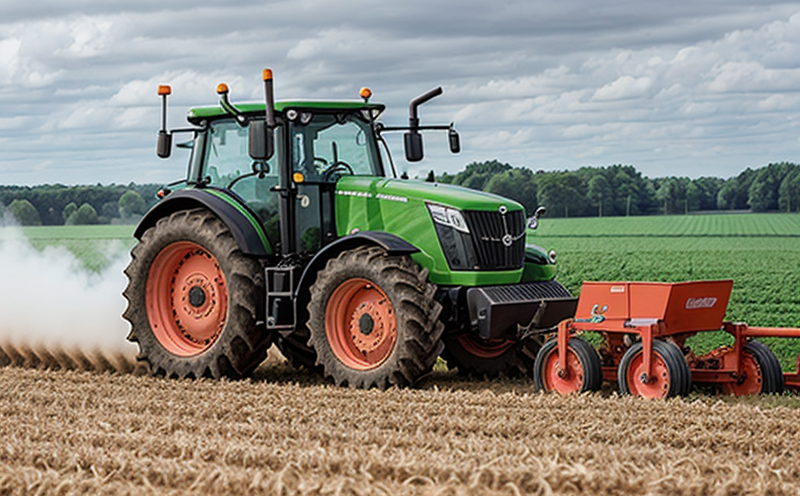Irrigation System Pressure Testing
The importance of irrigation systems in agriculture cannot be overstated. These systems ensure that crops receive an optimal amount of water, which is critical for their growth and development. However, the efficiency and longevity of these systems can only be guaranteed through thorough testing and maintenance.
Irrigation system pressure testing is a crucial process that involves assessing the integrity and performance of irrigation pipes, valves, and other components under specified operating conditions. This service ensures that water flows efficiently to where it needs to go without leaks or blockages. In this section, we will explore the detailed steps involved in conducting such tests, the standards applied, and why they are essential.
During pressure testing, a controlled amount of fluid is introduced into the irrigation system at specified pressures. The system is monitored for any signs of leakage or unusual behavior. This process helps identify potential issues before they lead to costly repairs or failures. Once the test is completed successfully, it provides peace of mind and ensures that the irrigation system operates optimally.
For agricultural machinery & equipment testing, this service aligns perfectly with maintaining the efficiency and reliability of irrigation systems. By ensuring these systems are in top condition, farmers can maximize their yield while minimizing water waste—a key goal for sustainable agriculture practices.
Applied Standards
The testing procedures followed during irrigation system pressure tests adhere to several internationally recognized standards. These include ISO 15847, which provides guidelines for the design and installation of agricultural water systems; ASTM D6043, which outlines methods for determining permeability rates in geomembranes used in irrigation; and EN 1291, which specifies requirements for pressure testing of pipes.
These standards ensure that the tests are conducted in a consistent manner across different regions and equipment types. Compliance with these standards guarantees accurate results and reliable performance data, which is crucial for regulatory compliance and quality assurance purposes.
Why Choose This Test
- Preventative Maintenance: Regular pressure testing helps identify potential issues early on, preventing costly repairs or system failures that could disrupt operations.
- Compliance Assurance: Ensures adherence to local and international regulations regarding water usage and equipment performance.
- Enhanced Efficiency: Identifies areas where water loss can be reduced, thereby optimizing resource use.
- Sustainability: By ensuring efficient water distribution, the test contributes significantly to sustainable agricultural practices.
Environmental and Sustainability Contributions
The pressure testing of irrigation systems plays a vital role in promoting sustainability within agriculture. Efficient water use is one of the key objectives in modern farming, and this service helps achieve that goal by identifying leaks and inefficiencies early on.
By minimizing water waste, farmers can reduce their environmental footprint while also lowering operational costs. This not only benefits individual farms but contributes positively to global efforts towards sustainable development goals (SDGs). The testing process ensures that all components of the irrigation system are functioning optimally, leading to better crop yields and healthier ecosystems.





